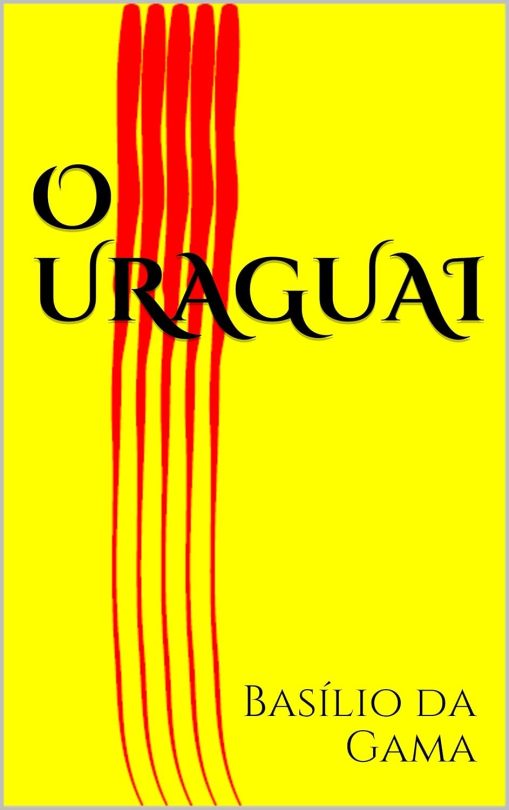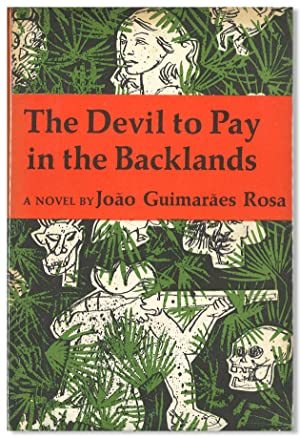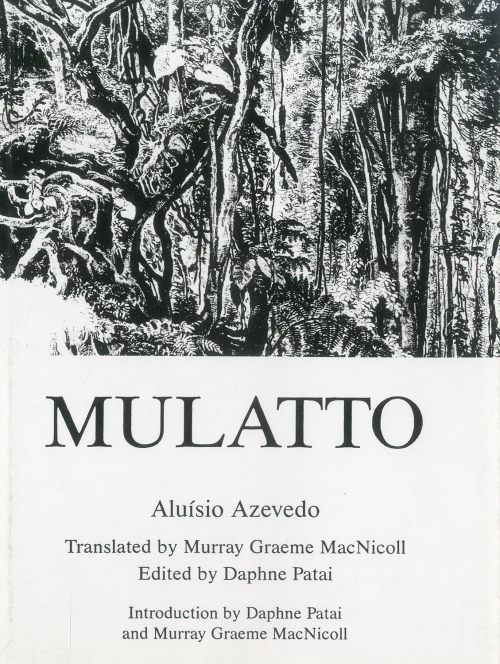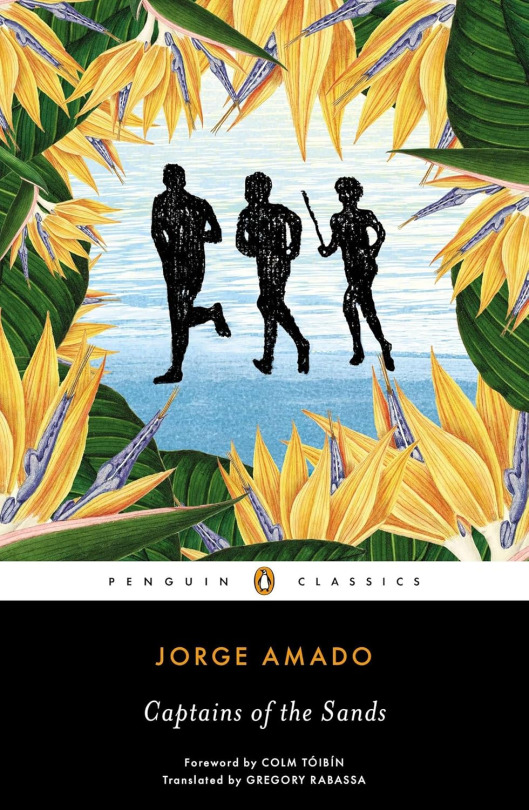
carnivalofstories
Celebrating Brazilian stories through book recommendations
22 posts
Latest Posts by carnivalofstories
Jaguar

"Wildcat's a beautiful thing! You ever seen one? When there's a little stirrin' in the ban1boo thicket, just a tremblin' for no reason: then that's one, eh, that could be one"
About the Book
Title: Jaguar and Other Stories Author: João Guimarães Rosa Published: - Original Title: -
Summary
This book is a compilation of stories by Guimarães Rosa, blending philosophical reflections and regionalism. Each story takes the readers to the backlands.
Key Themes
Folklore
Fate
Man and nature
The Guaraní War

"Still reek outstretching o’er the desert strands Lakes of man’s life-tide tepid and impure Where float the fragments of the unsheeted dead Baiting the vulture. Volley still the vales With hoarse artillery bellowing horrid sound. Muse! do we honour to the Brave who tamed Uruguay’s rugged brood, and in its blood Washed out the affronting of his King’s decrees. Aye me! Thou lust of Empire, such thy cost!"
About the Book
Title: The Uruguay Author: José Basílio da Gama Published: 1769 Original Title: O Uraguai
Summary
This epic poem tells the story of the end of the Guaraní War (1754-1756), focusing on the enslavement of the Guaraní people under the control of the Jesuits (Society of Jesus). Set in Rio Grande do Sul, it offers a critical perspective on the conflict and the power dynamics at play.
The poem is divided into five cantos, following a style inspired by The Lusiads by Luís Vaz de Camões.
P.S. In English, the book is titled The Uruguay because the story is set along the Uruguay River in Rio Grande do Sul. Also, Uraguai with an "a" might have been a poetic choice by the author.
Key Themes
Colonialism
Power and War
Religion and Slavery
Journey Through the Backlands

"Did that make sense? But he was neither crazy nor worried, nor ready for hanging. Even when a capybara sits, it does so to think, not to lose heart."
About the Book
Title: The Devil to Pay in the Backlands Author: João Guimarães Rosa Published: 1956 Original Title: Grande Sertão: Veredas
Summary
The Devil to Pay in the Backlands blends mysticism, philosophy, and the reality of Brazilian life in the arid Northeast. The narrator, Riobaldo, is a former jagunço who recounts his journey through the backlands.
Key Themes
Good vs. Evil
Destiny
Violence
Searching for meaning
Racial Inequality and love

"On a sultry and oppressive day, the decadent city of Sao Luis Maranhao lay sprawled in the tropical heat."
About the Book
Title: Mulatto Author: Aluísio Azevedo Published: 1881 Original Title: O Mulato
Summary
The book addresses racial inequality in 19th-century Brazil. It was one of the first novels to discuss miscegenation and its cultural and social effects.
Mulatto follows the story of Raimundo, a young mulatto man who seeks to rise in society. Things get complicated when he falls in love with Rosa, a white aristocratic woman. Their forbidden love faces intense social opposition, leading to a tragic conflict where race, class, and desire collide.
Key Themes
Racial inequality
Social class
Colonial Brazil
Love and Revenge

"Convinced that all those who professed love for her, without exception, sought only her wealth, Aurelia reacted to this affront by responding to these individuals in kind."
About the Book
Title: Senhora: Profile of a Woman Author: José de Alencar Published: 1875 Original Title: Senhora
Summary
Senhora follows Aurélia Camargo, a young woman who inherits a fortune and uses it to buy back her former fiancé, Fernando Seixas, who once abandoned her for a wealthier match. As her plan for revenge unfolds, Aurélia finds herself torn between love and pride.
P.S. There is a happy ending.
Key Themes
Love vs. money
Female agency
Honor
Idealist vs. reality
The Art of Getting Away with Everything

"The boy, while he was new in his godfather’s house, comported himself with the utmost circumspection and gravity. As soon as he started feeling at home, however, the gloves came back off."
About the Book
Title: Memoirs of a Militia Sergeant Author: Manuel Antônio De Almeida Published: 1852 Original Title: Memórias de um Sargento de Milícias
Summary
This is the only book written by Manuel Antônio de Almeida.
The novel tells the story of a troublesome child named Leonardo, who grows into a reckless young man and a trickster, constantly finding himself in trouble. It’s a very funny story, full of twists as Leonardo tries to dodge his responsibilities. Nothing in Memoirs of a Militia Sergeant is idealized or tragic. Seriously, the ending is amazing.
Key Themes
Comedy
Antihero
Social mobility
Love
Three Girls, Three Fates

"Perhaps love for death is like love for a man, and she is satisfied, is consoled, and is cured only after being possessed and exhausted."
About the Book
Title: The Three Marias Author: Rachel de Queiroz Published: 1963 Original Title: As Três Marias
Summary
This novel follows the lives of three friends—Maria Augusta, Maria da Glória, and Maria José—who meet at a Catholic boarding school. Life takes them in different directions, shaped by societal expectations, love, and family. The narrator, Maria Augusta, struggles to fit into the role that society imposes on her.
Key Themes
Coming of age
Religion
Love
Gender Roles
Expectations
Friendship
A true story

"It is truly regrettable that in these times we do not have a Maudsley, who knew the difference between good sense and insanity, to prevent nations from committing acts of madness and crimes against humanity."
About the Book
Title: Backlands: The Canudos Campaign or Rebellion in the Backlands Author: Euclides da Cunha Published: 1902 Original Title: Os Sertões
Summary
This book is a retelling of the War of Canudos (1896–1897), which took place in the state of Bahia. The writer, Euclides da Cunha, was a correspondent for the Brazilian newspaper O Estado de S. Paulo. It is considered the first livro-reportagem (reportage book) in Brazil. Mixing science and literature, the story narrates the war between the republican army and the sertanejos.
Key Themes
True story
Resistence
War
Brazilian backlands
The saddest book

"The dog wanted to sleep. She would wake up happy, in a world full of cavies, and would lick the hands of Fabiano—a Fabiano grown to enormous proportions. The boys would roll on the ground with her in an enormous yard, would wallow with her in an enormous goat pen. The world would be full of cavies, fat and huge."
About the Book
Title: Barren Lives Author: Graciliano Ramos Published: 1938 Original Title: Vidas Secas
Summary
Everything about this book is pure sadness. I’ll just tell you now: it doesn’t have a happy ending. The story follows a family living in Brazil’s Northeast, struggling to survive due to the relentless drought. There are many characters (some of whom aren’t even named), but the most iconic is the dog Baleia (Whale in Portuguese), who is nothing but skin and bones.
P.S. The dog chapter is absolutely heartbreaking.
Key Themes
Poverty
Drought
Survival
Northeast Region
Cicle
City of God

"It was kite-flying time in City of God."
About the Book
Title: City of God Author: Paulo Lins Published: 1997 Original Title: Cidade de Deus
Summary
If you’ve ever heard of the Brazilian movie City of God, you already have an idea of how the story unfolds. The novel follows the lives of the residents of Rio de Janeiro’s most notorious favela, offering a glimpse into the harsh reality of poverty.
Key Themes
Crime
Violence
Drug Trafficking
Social Inequality
Did she cheat or not?

"Capitu, in spite of those eyes the devil gave her … Have you noticed her eyes? They’re a bit like a gypsy’s, oblique and sly."
About the Book
Title: Dom Casmurro Author: Machado de Assis Published: 1900 Original Title: Dom Casmurro
Summary
Dom Casmurro follows the story of Bentinho, a man who reflects on his past, particularly his relationship with Capitu. He raises questions about whether his suspicions regarding Capitu's fidelity are true or merely the result of paranoia. Additionally, they have a son who Bentinho believes does not resemble him at all.
Bentinho is an unreliable narrator, as he is the sole person telling the story, and the author makes us question whether he is telling the truth or not.
Key Themes
Jeaslisy
Memory vs. Perception
Love and Trust
Unreliable Narrator
America

"Who has taught you, white warrior, my brothers' tongue? From where have you come to these woods, which have never seen another warrior like you?"
About the Book
Title: Iracema Author: José de Alencar Published: 1865 Original Title: Iracema
Summary
The story follows the romance between Iracema, an indigenous woman, and Martim, a Portuguese colonizer. Iracema's name is an anagram of America. There is a lot of critique of colonialism in this story, as Martim represents the colonizers (the Portuguese).
Key Themes
Colonialism
Heritage
Cultural clash
National Identity
Two Husbands, One Ghost

"BRIEF REPORT (APPARENTLY UNCALLED FOR) OF THE CONTROVERSY THAT SPRANG UP CONCERNING THE AUTHORSHIP OF THE ANONYMOUS POEM THAT CIRCULATED FROM TAVERN TO TAVERN, IN WHICH THE POET LAMENTED THE DEATH OF V ADINHO, WITH THE TRUE IDENTITY OF THE UNKNOWN BARD, FINALLY REVEALED ON THE BASIS OF CONCRETE PROOFS"
About the Book
Title: Dona Flor and Her Two Husbands Author: Jorge Amado Published: 1966 Original Title: Dona Flor e Seus Dois Maridos
Summary
Dona Flor becomes a widow after the death of her reckless and charming husband, Vadinho. Later, she remarries Dr. Teodoro, a respectable and stable man. However, things take an unexpected turn when Vadinho returns as a ghost, forcing her to navigate between her two very different husbands. The novel is a satirical and playful exploration of passion, reason, and desire.
P.S. There’s a famous movie adaptation from 1976, and it was also adapted into a novela!
Key Themes
Desire
Morality vs. Passion
Supernatural elements
Female Independence
Clove and Cinnamon

“Isn’t that what it is? Love—the most wonderful and most terrible thing in the world.”
About the Book
Title: Gabriela, Clove and Cinnamon Author: Jorge Amado Published: 1958 Original Title: Gabriela, cravo e canela
Summary
The book is set in the 1920s in Ilhéus, a town experiencing a boom in the cacao industry. The novel follows Gabriela, a migrant worker who captivates the bar owner, Nacib, and from this, their love story unfolds. As with most of Jorge Amado's works, it is a highly sensual story.
P.S. There are at least three TV adaptations of this novel in Brazil. It is a very popular story.
Key Themes
Desire
Power dynamics
Gender roles
Social change
Tradition vs. Progress
Finding Your Destiny

"The boy could see in his father’s gaze a desire to be able, himself, to travel the world—a desire that was still alive, despite his father’s having had to bury it, over dozens of years, under the burden of struggling for water to drink, food to eat, and the same place to sleep every night of his life."
About the Book
Title: The Alchemist Author: Paulo Coelho Published: 1988 Original Title: O Alquimista
Summary
The Alchemist follows the journey of Santiago, a shepherd from Spain who dreams of finding a hidden treasure near the Egyptian pyramids. His quest takes him to many places, where he encounters wise mentors and people who help him along the way.
Santiago learns about the importance of following his heart and pursuing his personal legend. The story is very spiritual and talks a lot about philosophy.
Key Themes
Destiny
Dreams
Self-discovery
Spiritual enlightenment
Slum

"And on the muddy ground covered with puddles, in the sultry humidity, a living world, a human community, began to wriggle, to seethe, to grow spontaneously in that quagmire, multiplying like larvae in a dung heap."
About the Book
Title: The Slum Author: Aluísio Azevedo Published: 1890 Original Title: O Cortiço
Summary
The Slum tells the story of a tenement in Rio de Janeiro and the lives of its inhabitants. There are many characters in this story, but the slum itself is considered the main protagonist. Aluísio Azevedo paints a portrait of Brazilian society in the late 19th century.
Key Themes
Social commentary
Urbanization
Prejudice
Class struggle
Environment influence on human behavior
Surreal Adventures

"john c.: Three hundred miles, Chico? chico: Three hundred miles. I had ridden that far on my horse. All because he had been blessed. john c.: But, Chico, how did you cross the San Francisco River, that never runs dry? chico: There you go again, John, with your mania for asking questions. john c.: Of course I want to know: How did you get across? chico: I don’t know. All I know is, that’s the way it was."
About the Book
Title: The Rogue’s Trial Author: Ariano Suassuna Published: 1955 Original Title: Auto da Compadecida
Summary
The Rogue's Trial is a comedic play that blends religious satire and Brazilian folklore. It follows João Grilo (Cricket) and Chicó, two men living in the Brazilian Northeast. The book is surreal and explores a range of themes, including morality, class struggles, and survival.
P.S. Satan is hilarious. Also, go watch the movie with the amazing Fernanda Montenegro.
Key Themes
Comedy
Faith
Redemption
Regional Identity
This book was burned during the military dictatorship

"In the mysterious night of the macumbas the drums resound like trumpets of war."
About the Book
Title: Captains of the Sand Author: Jorge Amado Published: 1937 Original Title: Capitães da Areia
Summary
Captains of the Sand is set in the city of Salvador and follows the story of a group of orphaned boys living on the streets. They survive through petty theft and share a deep sense of brotherhood. Their leader is Pedro Bala, a boy who is protective of his gang.
The book was banned during the Brazilian military dictatorship for its portrayal of poverty and its perceived communist ideas. It was even burned in a public square in November of 1937, alongside other books (mostly from Jorge Amado).
P.S. There are many things you will not agree with in the book, and it contains an explicit rape scene.
Key Themes
Poverty
Injustice
Social Exclusion
Survival
What is sanity?

“Were they all really insane? Did I really cure them? Or is not mental imbalance so natural and inherent that it was bound to assert itself with or without my help?”
About the Book
Title: The Alienist Author: Machado de Assis Published: 1882 Original Title: O Alienista
Summary
Dr. Simão Bacamarte is a brilliant but obsessive physician that made his life mission the study of mental illnesses in the small town of Itaguaí. Convinced he know how to determine who is sane and who is insane, the doctor begins commiting patients based on a rigid and weird criteria. Too emotional? Locked up. Too rational? also locked up.
This book is a mix of satire, irony, and existential dread. Who gets to decide what is insane? What is sanity? Machado de Assis challenges the reader to question everything about reason, while also critiquing the medicalization of traits that, in his time, were considered mental illness (like hysteria).
Key Themes
Science vs Humanity
Satire
Power
Madness vs Reason
The Don Quixote of Brazilian Nationalism

"And she thought how diverse and varied life is, how it is richer in sadness than in happiness and how in the variety of life there are more varieties of sadness than there are of happiness and how sadness lies at the core of life."
About the Book
Title: The Sad End of Policarpo Quaresma Author: Lima Barreto Published: 1915 Original Title: Triste Fim de Policarpo Quaresma
Summary
Policarpo Quaresma is a civil servant and a devoted patriot. An extremely idealistic man, he seeks to promote Brazilian culture in every way possible—advocating for Tupi as the national language and even attempting agricultural reforms (you know this is going to go wrong).
Quaresma is almost like Don Quixote—delusional and idealistic. His story is a tragedy, and Lima Barreto masterfully critiques the hypocrisy of Brazilian society, exposing its resistance to change at the beginning of the Republic.
P.S.: This book is frustrating, goddamnit.
Key Themes
Tragedy
Political Criticism
Cultural Identity
Nationalism and Idealism
Hour of the Star

"This story takes place during a state of emergency and a public calamity. It's an unfinished book because it’s still waiting for an answer. An answer I hope someone in the world can give me. You? It’s a story in Technicolor to add a little luxury which, by God, I need too. Amen for all of us."
About the Book
Title: Hour of the Star Author: Clarice Lispector Published: 1977 Original Title: A Hora da Estrela
Summary
Macabéa is a typist living in the slums of Rio de Janeiro. She is ugly and unloved. She loves movies and her horrible boyfriend. Her story is told by Rodrigo S.M., a narrator who spirals into philosophical musings about fate, poverty, and the meaning (or meaninglessness) of life as he unravels Macabéa’s existence.
This book will disturb you. It might make you feel horrible. And yet, you won’t be able to look away.
P.S.: The cockroach scene. You will never forget it. No matter how much you try.
Key Themes
social commentary
disturbing
identity
poverty
Is he a dead writer or a writer who is dead?

"To the worm who first gnawed on the cold flesh of my corpse, I dedicate with fond remembrance these Posthumous Memoirs."
About the Book
Title: The Posthumous Memoirs of Brás Cubas Author: Machado de Assis Published: 1881 Original Title: Memórias Póstumas de Brás Cubas
Summary
The Posthumous Memoirs of Brás Cubas is a satirical novel, in which the narrator, Brás Cubas, tells his life story from beyond the grave. From this unusual point of view, Brás Cubas criticizes the 19th-century Brazilian society.
Brás Cubas narrates with an ironic and humorous tone, mocking the world and himself. He even begins his memoirs not with his birth, but with his own death. This weird man spends his life in failed romances, half-hearted political ambitions, and existential boredom, only to realize (too late) that he achieved absolutely nothing.
P.S. There is a chapter with only exclamation points.
Key Themes
mortality and death
irony and satire
social commentary
existentialism